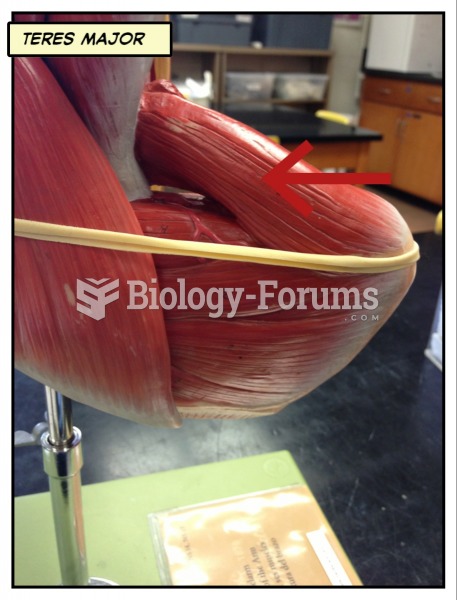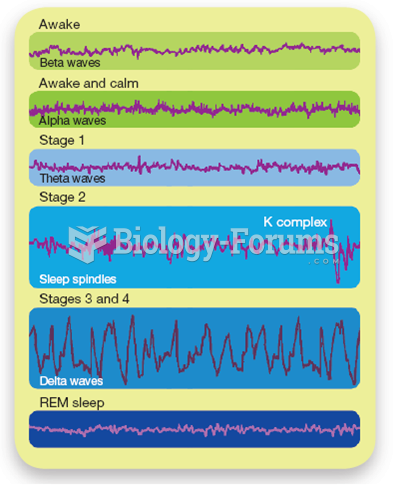This topic contains a solution. Click here to go to the answer
|
|
|
Did you know?
The B-complex vitamins and vitamin C are not stored in the body and must be replaced each day.
Did you know?
Street names for barbiturates include reds, red devils, yellow jackets, blue heavens, Christmas trees, and rainbows. They are commonly referred to as downers.
Did you know?
It is difficult to obtain enough calcium without consuming milk or other dairy foods.
Did you know?
There are more bacteria in your mouth than there are people in the world.
Did you know?
The average office desk has 400 times more bacteria on it than a toilet.







